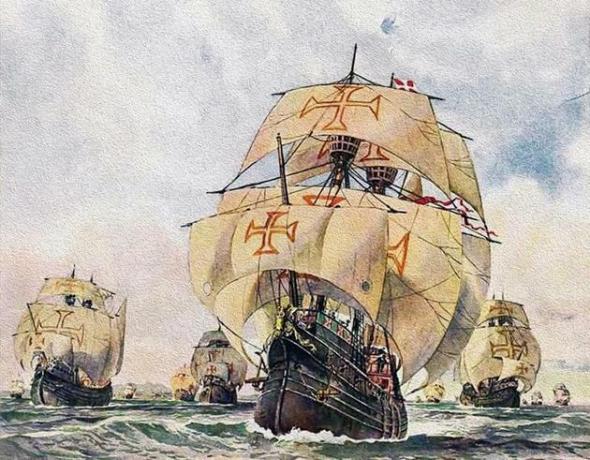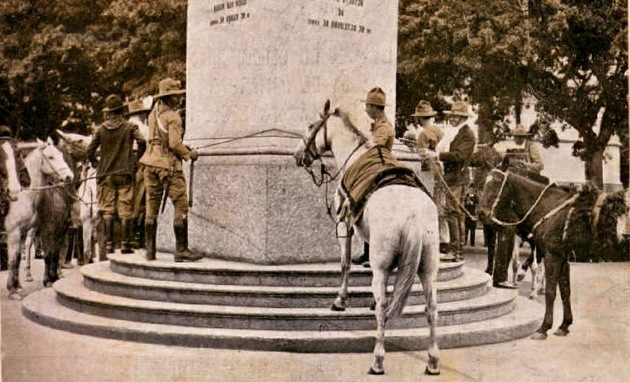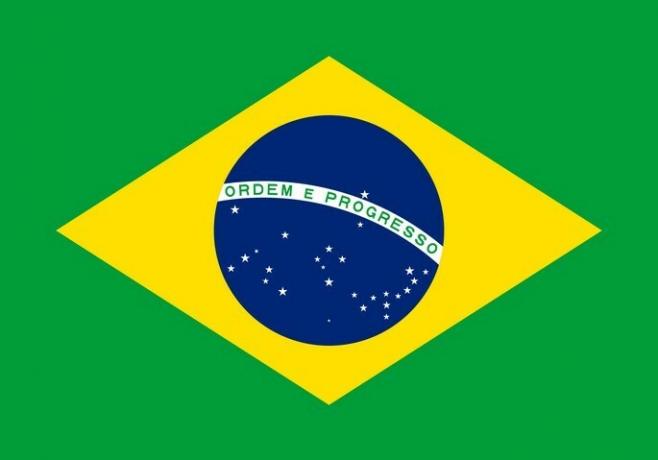Since the arrival of the Portuguese in Brazil in 1500, the newly discovered territories aroused great interests from other European peoples. In the present text we will address the attempts of French invasions in the Brazilian colonial territory, which at the time belonged to the Portuguese metropolis.
France was the first European kingdom to challenge the Treaty of Tordesillas (1494), which divided the discovered lands in America between Portugal and Spain. The Brazilian coast was constantly frequented by the French since the period of pau-brasil extraction. The French, at that time, maintained permanent contacts with indigenous peoples and from this relationship they articulated agreements and alliances with these peoples.
In the 16th century, more specifically in the year 1555, the French founded the so-called França Antártica, in Guanabara Bay (now Rio de Janeiro). There they built a society with Protestant influences, since, in the 16th century, thousands of European Protestants fled from Europe to America in consequence of the Catholic persecution during the Religious Counter-Reformation (a set of measures taken by the Catholic Church with the emergence of religions Protestants).
Under French influence, some parts of the Brazilian coast gained several factories and (military) forts. The main indigenous people that perpetuated the alliance with the French was the Tamoio. From this agreement emerged the Confederation of Tamoios (an alliance between several indigenous peoples of the coast: tupinambás, tupiniquins, goitacás, among others), who had a common goal: to defeat the Portuguese colonizers.
For five years, approximately, there were several conflicts between the Portuguese and the Confederation. In the year 1567, the Portuguese defeated the Confederation, extinguishing it and expelling the French from colonial territory.
Do not stop now... There's more after the advertising ;)
Contrary to what many people thought, the French did not so easily give up on Brazil. They were expelled from the Brazilian coast, in the southeast region (Rio de Janeiro), but established a new settlement in the territory during the century XVII, but in the northeast region, more precisely in the city of São Luís (current capital of Maranhão), where they founded, in 1612, the so-called França Equinoctial.
Again, France was trying to develop a civilization in colonial Brazil. Metropolis Portugal, quickly, in order not to lose parts of the colony's territory, sent a military expedition to the Maranhão region. This Portuguese expedition attacked the French both by land and by sea. In 1615, the French were defeated and withdrew from Maranhão, moving to the Guianas region, where they founded a colony, called French Guiana.
After two unsuccessful attempts to establish a French civilization, in the 16th and 17th centuries, in colonial Brazil (France Antarctica and Equinoctial France), the French began to plunder, through corsairs (pirates), some cities on the Brazilian coast, in the XVIII century. The main one was the city of Rio de Janeiro, from where all the gold extracted from the colony flowed towards Portugal. A first attempt at plunder, in 1710, was stopped by the Portuguese; however, in the year 1711, French pirates took the city of Rio de Janeiro and received from the Portuguese a high ransom to free it: 600 thousand cruzados, 100 sugar boxes and 200 oxen. The attempts of French invasions in Brazil ended, then.
Leandro Carvalho
Master in History



